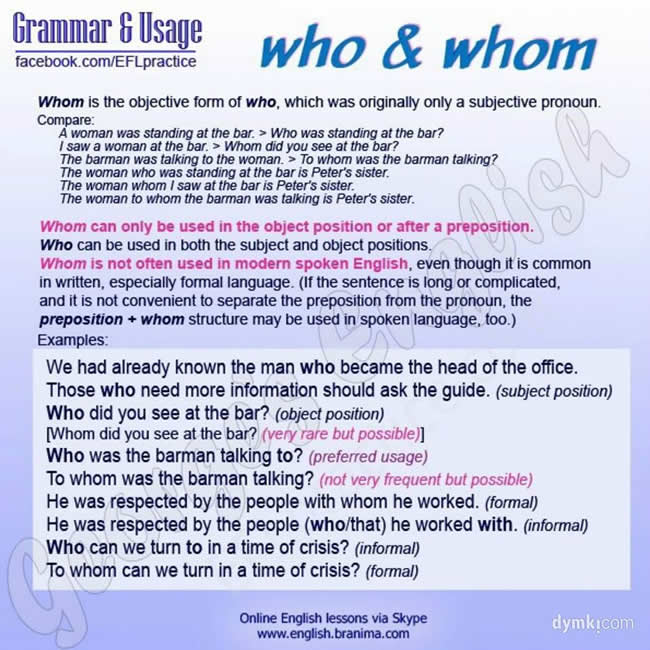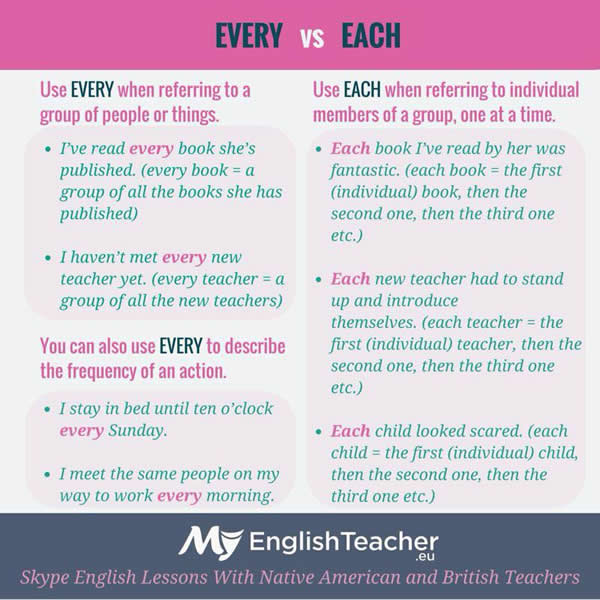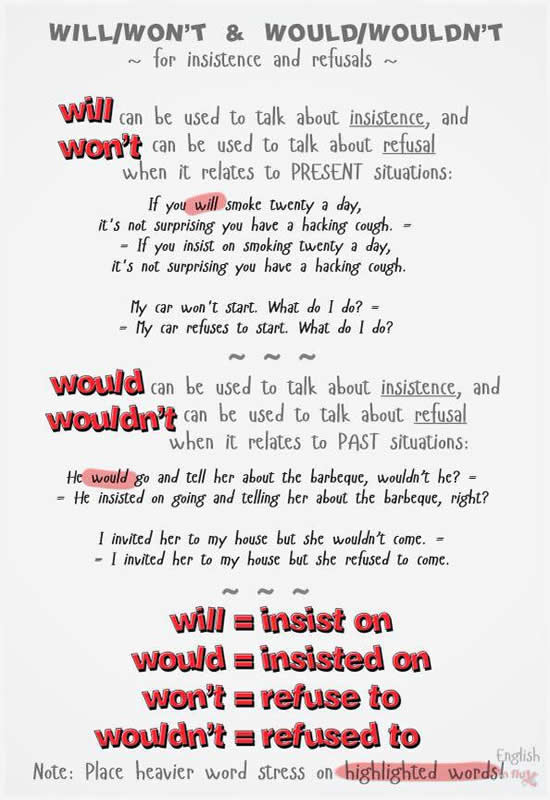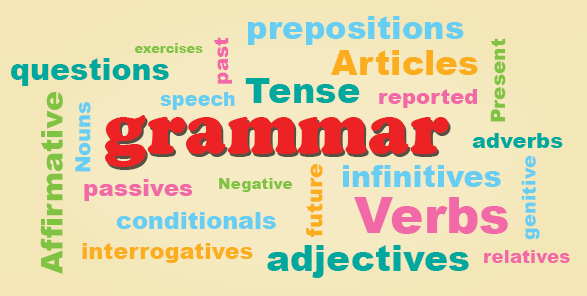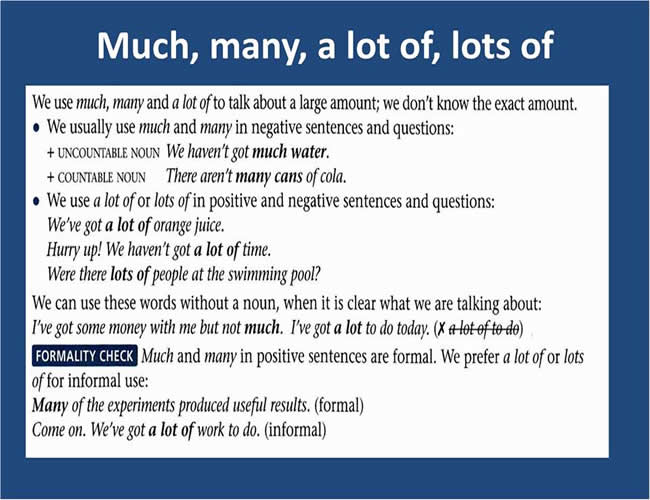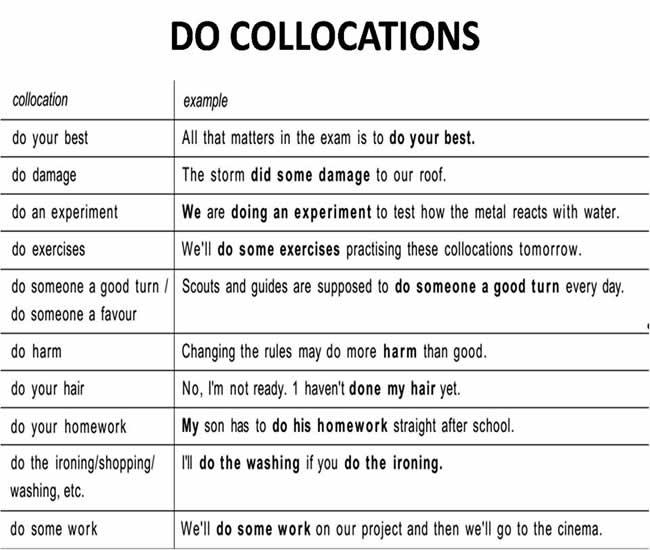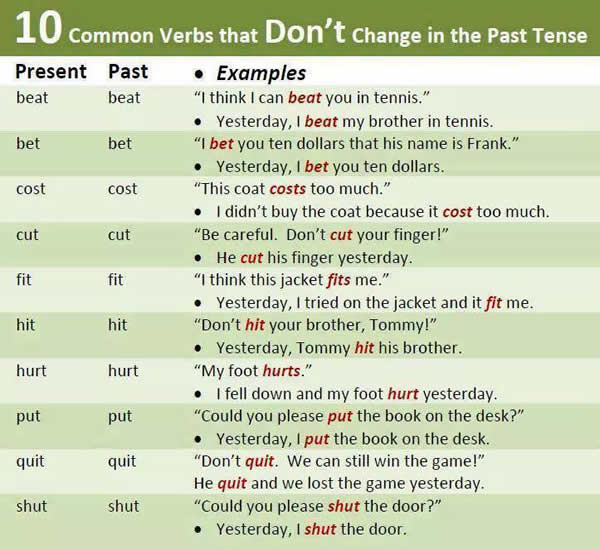Category: Grammar
Uses of Who and Whom with Examples Whom is the objective form of who, which was orginally only a subjective pronoun. Follow the list for compare;
Every vs Each (Using and Differences with Examples) Use every when referring to a group of people or things. Use each when referring to individual members of a group, …
Wish Clauses – Detailed Expression wish + past tense wish + past perfect wish + would + action
Uses of Will / Won’t and Would / Wouldn’t (for insistence and refusals) will can be used to talk about insistence, won’t can be used to talk about refusal …
The Differences Between “By” and “With” Both prepositions can be used to show how something is done.
Reporting verbs Reporting verb + ‘that’ + clause; admit, deny, insist, suggest, reporting verb + verb-ing; deny, suggest, reporting verb + preposition + verb-ing; apologise, insist, reporting verb + …
Uses of Much, Many, A lot of, Lots of We use much, many and a lot of to talk about a large amount; we don’t know the exact amount.
The use of certain tenses The simple present tense in used for habitual actions, while the present continuous is used for actions taking place at the present moment….
Collocations – Do Do your best, do damege, do an experiment, do exercises, do someone a good turn, do someone a favour, do harm, do your hair, do your …
Common verbs that don’t change in the past tense Verbs; Beat, bet, cost, cut, fit, hit, hurt, put, quit, shut Follow the list for using these words with sentences;
